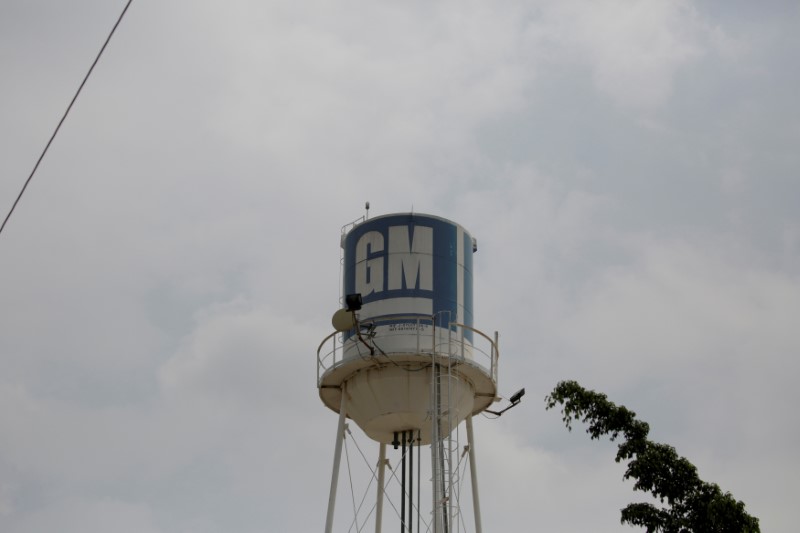By Mrinalika Roy
(Reuters) – A tight U.S. labor market, the expiry of union contracts and high living costs have led to tough negotiations for pay hikes and benefits, triggering strikes and protests across industries.
Nearly 309,700 workers have been involved in work stoppages and strikes through August this year, according to preliminary data from the U.S. Bureau of Labor Statistics, putting 2023 on track to becoming the busiest year for strikes since 2019.
Here are some sectors and companies that faced tough negotiations in 2023:
MEDIA
Members of the Writers Guild of America (WGA) approved a new three-year contract with major studios on Oct. 9. Film and television writers had walked off the job in May over compensation, staffing and residual payments, among other issues. They returned to work on Sept. 27 after negotiators reached a tentative agreement.
In July, the SAG-AFTRA actors union joined the writers on picket lines. Negotiations between Hollywood studios and the union were suspended on Oct. 11 as the two sides clashed over streaming revenue.
AUTOMOTIVE
United Auto Workers on Oct. 11 shut down Ford’s biggest plant globally, in a sharp escalation of the union’s four-week targeted strike against the Detroit Three automakers.
The coordinated strike against General Motors (NYSE:), Ford Motor (NYSE:) and Chrysler parent Stellantis (NYSE:), which began after the earlier contracts expired on Sept. 15, initially targeted three assembly plants.
Union workers at Volvo (OTC:) Group-owned Mack Trucks went on strike on Oct. 9 after overwhelmingly rejecting a proposed five-year contract.
PARCEL DELIVERY
Teamsters union workers at United Parcel Service (NYSE:)
ratified a new five-year contract in August, a deal that raises pay, eliminates a two-tier wage system for drivers, provides another paid holiday and ends forced overtime.
FedEx (NYSE:) pilots have been involved in a standoff with the parcel delivery firm over wages and legacy pensions. Pilots rejected a tentative deal in July and negotiations are expected to restart.
AIRLINES & AEROSPACE FIRMS
Pilots at several airlines including American Airlines (NASDAQ:), Delta Air Lines (NYSE:), United Airlines Holdings (NASDAQ:), Spirit Airlines (NYSE:) and Jetblue Airways negotiated new job contracts this year.
Members of some unions like the Southwest Airlines (NYSE:) Pilots Association have voted to authorize a strike if a new contract is not reached.
Spirit AeroSystems (NYSE:) negotiated a new contract to end a strike that led to a week-long work stoppage at its plant in Wichita, Kansas.
MANUFACTURING
U.S. steel producer Cleveland-Cliffs (NYSE:) has reached a tentative agreement with the United Steelworkers union on a new three-year labor agreement for its Northshore mining operations.
U.S. Steel, which is reviewing multiple proposals ranging from partial acquisition to an entire buyout, is embroiled in a tussle with the United Steelworkers union. The company’s unionized workers say they essentially have the power to veto any transaction they do not approve of.
CONSUMER & RETAIL
In Las Vegas, thousands of workers announced plans in early October to picket in front of eight MGM Resorts (NYSE:) and Caesars (NASDAQ:) Entertainment resort locations. Unions representing the roughly 53,000 Las Vegas workers have held talks with MGM, Caesars and Wynn Resorts (NASDAQ:) over a new five-year contract.
Thousands of hospitality workers in Detroit walked off the job on Oct. 17 after unions called for strikes at three casinos – MGM Grand Detroit, operated by MGM Resorts International; Hollywood Casino at Greektown, operated by Penn Entertainment; and MotorCity Casino.
The Detroit Casino Council (DCC) called the first strike in its history after negotiations that had begun in the summer did not yield a new contract.
More than 3,000 workers at more than 150 Starbucks (NASDAQ:) stores in the U.S. held strikes in June, following claims the company had banned Pride Month decorations at some of its cafes.
Thousands of Los Angeles-area hotel staffers went on a three-day strike in July over improved wages, benefits and working conditions. Union leaders representing the workers have threatened further walkouts.
HEALTHCARE
Kaiser Permanente’s healthcare workers’ unions reached a tentative agreement with the company on Oct. 13, settling a dispute that sparked the largest-ever such labor action in the medical sector.
Tens of thousands of nurses and other healthcare workers at Kaiser Permanente staged a planned three-day strike last week over pay and staffing issues.
More than 7,000 nurses went on a three-day strike in New York City over staffing levels and pay hikes in January.
CANNABIS
Unions representing cannabis workers have also increased pressure on companies in the sector this year.
Workers at Green Thumb Industries (OTC:)’ Chicago-area RISE dispensaries went on a 13-day unfair labor practices (ULP) strike in April, which was the longest ULP strike at a cannabis retailer in U.S. history.
Labor unions secured new contract agreements at multistate operator-owned cannabis dispensaries in Illinois and in New Jersey in July.
ENERGY
Unionized workers at Phillips 66 (NYSE:)’s refinery in Roxana, Illinois, ratified a contract with the refiner in late-stage negotiations, averting a potential strike.
The union had been in talks with the refiner since summer, when it rejected a company proposal and sought additional benefits for holiday and vacation hours and pay, among other improvements.
Read the full article here




